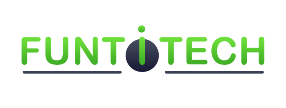The COVID-19 pandemic showed a clear clash between science and politics. Science provided crucial data and recommendations, but these were often ignored. Political decisions sometimes conflicted with scientific advice, impacting public health.
Ignoring Early Warnings
At the start of the pandemic, scientists warned of a serious threat. They advised quick action to prevent the virus from spreading. However, political leaders were slow to act. This delay allowed the virus to spread rapidly, worsening the crisis.
Confusing Guidelines for the Public
Throughout the pandemic, mixed messages led to confusion. Different officials gave varying advice on masks and social distancing, so much that playing 22bet login became clearer. This lack of clear, consistent guidance made it hard for people to know what to do. Confusion weakened the effectiveness of health measures.
Media’s Role in the Crisis
The media played a big part in how the pandemic was viewed. News outlets often highlighted political issues rather than sticking to the science. This focus on politics rather than facts led to misinformation. It affected how people understood and followed health guidelines.
Economic Pressures and Health Policies
Economic factors often influenced health decisions during the pandemic. Governments had to balance health needs with economic concerns. Sometimes, this led to prioritizing economic recovery over strict health measures. The focus on economics sometimes ignored scientific advice.
Clear Communication Matters
Effective communication from leaders is key during a crisis. The pandemic showed that clear, accurate messages are essential. Leaders need to base their guidance on scientific advice. This helps build public trust and ensures people follow health measures.
Public Trust and Its Impact
Public trust in leaders’ handling of the pandemic was affected. Many felt that decisions were not based on science. This lack of trust led to resistance against health measures. Building and maintaining trust is crucial for effective public health responses.
Experts and Policy Decisions
Experts should have a central role in making health policies. Their knowledge is crucial for good decision-making. During the pandemic, their advice was sometimes overshadowed by political interests. Better integration of expert advice into policy decisions is needed.
The Early Warnings
In early 2020, scientists warned of a possible pandemic. They advised immediate action to prevent widespread infection. However, these warnings were not fully heeded. The delay in response led to a rapid spread of the virus.
Confusion and Mixed Messages
During the pandemic, messages about health guidelines were often confusing. Different authorities gave varying advice on wearing masks and social distancing. This inconsistency made it hard for the public to follow clear guidelines. Confusion weakened the effectiveness of public health measures.
Economic Pressures vs. Health Policies
Economic concerns often clashed with health recommendations. Governments faced pressure to reopen economies quickly. Sometimes, this led to relaxing restrictions too soon. The focus on economic recovery sometimes overshadowed the importance of following scientific advice.
The Role of Media
The media played a significant role in shaping public perception. Coverage often mixed political issues with health news. This blending of politics with science affected how people understood the pandemic. Accurate, science-based reporting was sometimes overshadowed by sensationalism.
Public Trust and Its Consequences
Public trust in health authorities was challenged during the pandemic. Many people felt decisions were politically motivated rather than based on science. This eroded trust and led to resistance against health measures. Building trust is essential for effective health crisis management.
The Impact of Science Overlooked
Ignoring scientific advice had serious consequences during the pandemic. The failure to follow expert recommendations led to higher infection rates. Clear communication from scientific experts is crucial for effective public health. Better adherence to science could have improved the response.
Integrating Science into Policy
For future health crises, integrating scientific advice into policy is vital. Effective communication and respect for experts can guide better decisions. Ensuring that policies are based on solid scientific evidence will help manage future emergencies more effectively.
Preparing for Future Crises
The pandemic taught important lessons about science and politics. Ensuring that scientific expertise guides policy is essential. Clear communication and respect for scientific advice will improve responses to future health emergencies. These lessons are vital for better crisis management.


